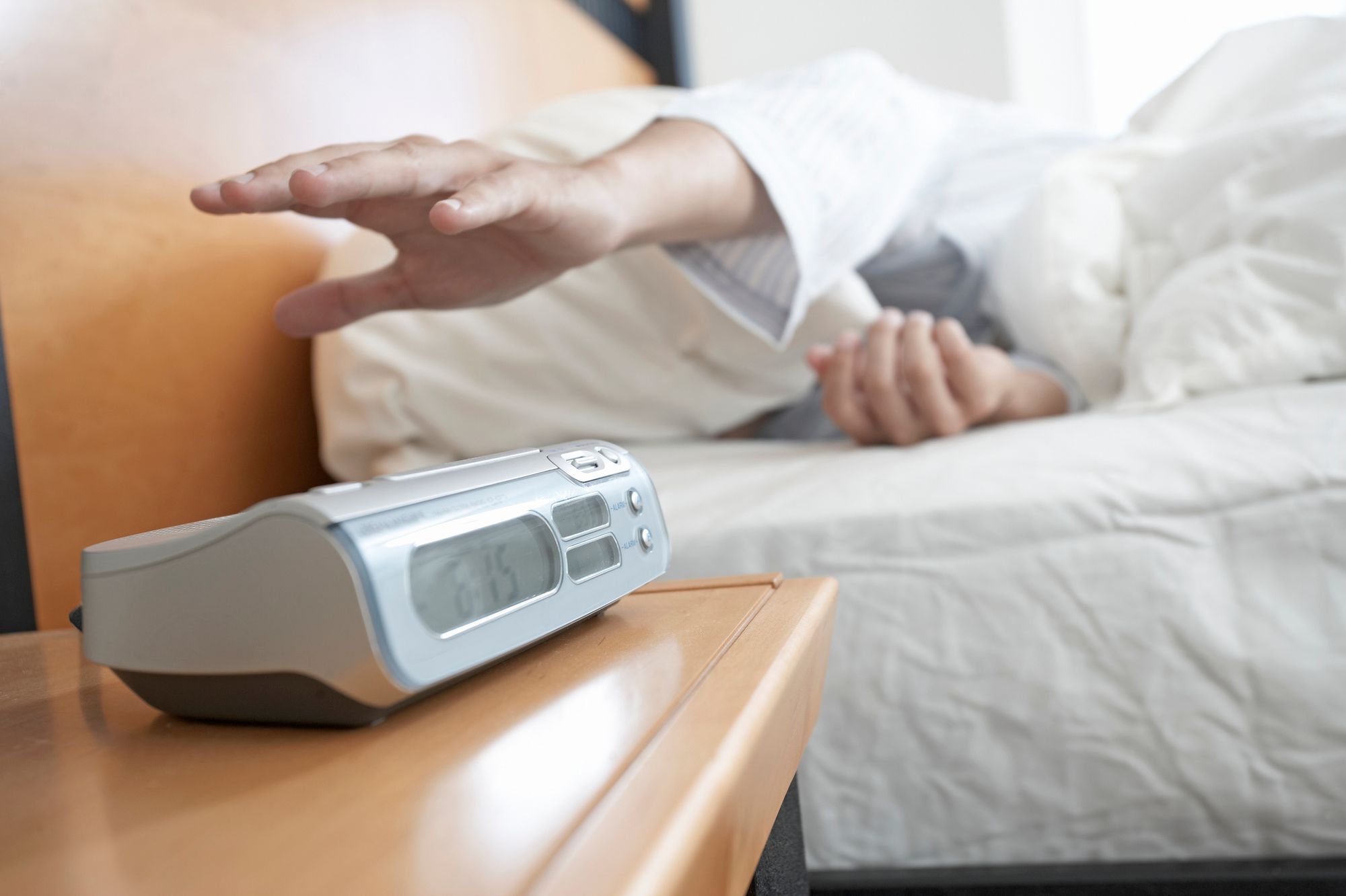Fact or Myth: Hitting Snooze Provides a Few Extra Minutes of Meaningful Sleep
The inventor of the snooze button did not have your best sleep interests in mind.

Whoever invented the snooze button did not have your best sleep interests in mind. The innocuous-looking bar that tempts you with 5 or 10 more minutes of rest in fact wreaks havoc on your natural sleep cycle, and sets you up to be tired and cranky for the rest of the day—not high performing or productive as you’d likely prefer.
Contrary to popular belief, or at least popular habits, it’s a myth that those extra minutes of sleep will be meaningful — and in fact may do more harm. Here’s why.
Why hitting snooze is bad for sleep health
“When you hit snooze you’re disrupting your sleep in two ways,” says sleep specialist, Jenna Gress Smith, PhD.
“First of all, you’re fragmenting what little extra sleep you’re getting, so it’s light and low quality. Fragmented sleep is generally not restorative, and in fact causes the same disoriented sensation as awakening from deep sleep—or an ill-timed nap.”
That groggy fuzzy feeling, called sleep inertia, can last throughout the day and affect both your memory and decision-making abilities.
Second, “if you do fall back asleep, your body will want to start a new sleep cycle, but you won’t have enough time to complete it within the 10-minute snooze window. Your body will be jarred in and out of REM or maybe light non-REM sleep. This pattern can disrupt your circadian rhythm, the body clock that regulates your awake-sleep time.”
“Much of the latter part of our sleep cycle is often made up of REM sleep, or dream sleep,” adds Gress Smith. “While all sleep stages are important, REM sleep is mentally restorative, so if you’re hitting snooze, you’re disrupting the stage of your sleep that helps with concentration, memory, and mental focus.
If you're desperate for those extra few minutes of sleep...

... it’s likely because you’re not getting a full night’s rest in the first place—the 7 to 9 hours a night that most adults need. And there are consequences to being sleep deprived that can impact our days in multiple ways.
A brain functioning on fractured or diminished sleep may not regulate appetite hormones well and is often too tired to make good food choices. (Think about how you crave fast food, a bag of chips, or a big bowl of ice-cream when you can’t keep your eyes open.) “Research has shown that poor sleep makes you less efficient at clearing sugar out of your blood stream and prone to secreting more insulin,” says Gress Smith, “both of which are precursors to type 2 diabetes."
Fragmented sleep, including disrupted REM sleep, can be a stressor on the body, kickstarting a fight-or-flight response, and has been linked to increased cortisol during the daytime. That spike in stress hormones together with the junk food can take a toll on your cardiovascular system, and may put you at higher risk of developing heart disease and other serious illnesses.
The facts
Hitting snooze is unlikely to get you any meaningful sleep. The fact is, hitting snooze is bad for sleep health. A better idea might be to apply those extra minutes toward an earlier bedtime.
